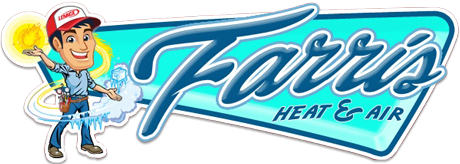
We spend lots of time indoors. As a matter of fact, the Environmental Protection Agency (EPA) has determined being within a building makes up 90% of our days. Having said that, the EPA also has determined your indoor air can be three to five times more polluted than outdoors.
That’s because our houses are tightly sealed to enhance energy efficiency. While this is good for your heating and cooling expenses, it’s not so good if you’re a part of the 40% of the population with respiratory allergies.
When outdoor ventilation is insufficient, pollutants such as dust and volatile organic compounds (VOCs) can get trapped. As a consequence, these pollutants might aggravate your allergies.
You can improve your indoor air quality with crisp air and regular dusting and vacuuming. But if you’re still struggling with symptoms during the time you’re at home, an air purifier might be able to provide relief.
While it can’t eliminate pollutants that have gotten trapped in your furniture or flooring, it could help clean the air traveling around your residence.
And air purification has also been scientifically proven to help lessen some allergic symptoms, according to the American College of Allergy, Asthma and Immunology. It may also be helpful if you or a loved one has a lung condition, like emphysema or COPD.
There are two models, a portable air purifier or a whole-home air purifier. We’ll discuss the advantages so you can figure out what’s correct for your residence.
Whole-House Air Purifier vs. Portable Air Purifiers
A portable air purifier is for a lone room. A whole-house air purifier works with your HVAC unit to purify your complete home. Some types can work on their own when your heating and cooling equipment isn’t operating.
What’s the Best Air Purifier for Allergies?
Look for a model with a High Efficiency Particulate Air (HEPA) filter. HEPA filters are used in hospitals and offer the most comprehensive filtration you can find, as they eliminate 99.97% of particles in the air.
HEPA filters are even more useful when installed with an ultraviolet (UV) germicidal light. This mighty blend can wipe out dust, dander, pollen and mold, all of which are general allergens. For the ultimate in air purification, think over a unit that also has a carbon-based filter to eliminate household odors.
Avoid getting an air purifier that generates ozone, which is the main ingredient in smog. The EPA advises ozone may worsen respiratory problems, even when discharged at minor amounts.
The Allergy and Asthma Foundation of America has compiled a listing of questions to consider when purchasing an air purifier.
- What can this purifier take out from the air? What doesn’t it remove?
- What’s its clean air delivery rate? (A better amount means air will be freshened more rapidly.)
- How frequently does the filter or UV bulb need to be replaced]? Can I do that without help?
- How much do replacement filters or bulbs cost?
How to Lessen Seasonal Allergy Symptoms
Want to get the {top|most excellent|best] performance from your new air purification system? The Mayo Clinic suggests completing other procedures to decrease your exposure to things that can trigger seasonal allergies.
- Stay indoors and keep windows and doors sealed when pollen counts are high.
- Have someone else trim the lawn or pull weeds, since these tasks can worsen symptoms. If you have to do these chores on your own, you might want to consider trying a pollen mask. You should also shower without delay and put on clean clothes once you’re finished.
- Avoid drying laundry outdoors.
- Use the AC while indoors or while in the car. Consider installing a high efficiency air filter in your house’s HVAC unit.
- Even out your residence’s humidity percentage with a whole-house dehumidifier.
- Hardwood, tile or linoleum are the best flooring types for reducing indoor allergens. If your home has carpet, install a HEPA filter on your vacuum cleaner.
Let Our Professionals Take Care of Your Indoor Air Quality Necessities
Prepared to take the next step with getting a whole-house air purifier? Give our professionals a call at 918-333-0376 or contact us online to get an appointment. We’ll help you choose the right unit for your family and budget.
